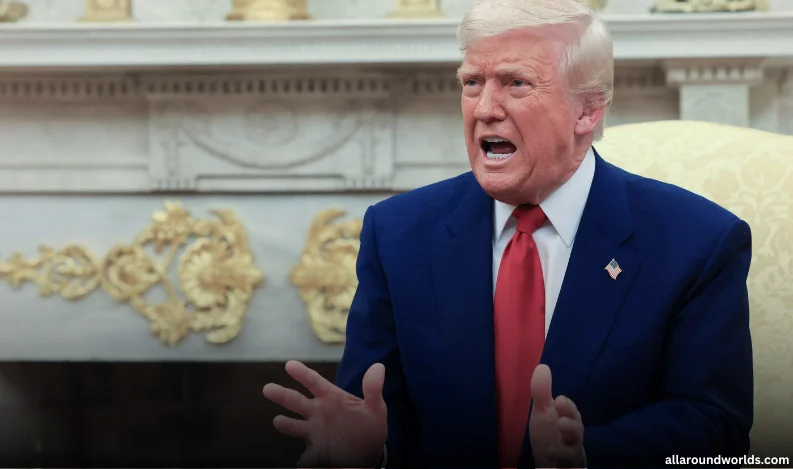
Navarro Rejects Vietnam’s Zero-Tariff Offer, Cites ‘Non-Tariff Cheating’ as Bigger Concern
WASHINGTON, D.C. — White House trade adviser Peter Navarro on Monday dismissed Vietnam’s recent offer to eliminate tariffs on U.S. imports, calling the gesture insufficient in the face of what he labeled ongoing “non-tariff cheating.”
In a live interview with CNBC’s Squawk Box, Navarro said the administration’s grievances go beyond simple tariff rates. “When they come to us and say ‘we’ll go to zero tariffs,’ that means nothing to us because it’s the non-tariff cheating that matters,” Navarro remarked.
His comments come days after U.S. President Donald Trump unveiled a new slate of broad-based tariffs, triggering market turbulence and intensifying trade tensions with key manufacturing nations, including Vietnam.
Allegations of Evasion and Unfair Practices
Navarro specifically pointed to a pattern of practices that, according to him, give Vietnam an unfair trade advantage. These include:
-
Transshipment of Chinese goods through Vietnamese ports to bypass tariffs.
-
Intellectual property theft and violations.
-
The use of value-added taxes (VAT) that, Navarro argues, distort trade dynamics.
Vietnam’s role as a global manufacturing hub — particularly for major U.S.-facing retailers such as Nike — has drawn renewed scrutiny under Trump’s aggressive “reciprocal tariff” framework. The administration has proposed a 46% tariff on imports from Vietnam, a dramatic escalation that sent the VanEck Vietnam ETF (VNM) tumbling 10% last Thursday.
Navarro later softened his tone slightly during the interview, conceding that Vietnam’s zero-tariff proposal could serve as a “small first start” but reiterated that substantive progress would require addressing structural trade barriers.
Trump’s Stance and Vietnam’s Offer
On Friday, President Trump posted on Truth Social that To Lam, general secretary of the Communist Party of Vietnam, had offered to eliminate tariffs on U.S. goods entirely. However, Navarro made it clear that the White House remains skeptical of such overtures unless accompanied by systemic reform.
“Tariffs are just the surface,” Navarro said. “It’s the tax games, the regulatory loopholes, the backdoor channels — that’s where the cheating happens.”
VAT Debate Returns to Spotlight
The trade dispute also places a renewed spotlight on the longstanding debate over VAT systems. Vietnam, like many nations, uses a value-added tax, which the U.S. has criticized for decades at the World Trade Organization (WTO).
“We have tried at the WTO since the 1970s to get VAT-tax relief, and they’ve told us no every single time,” Navarro noted.
He added that VAT will be a sticking point in any upcoming tariff negotiations with the European Union as well, indicating a broader international push by the U.S. to address what it sees as unfair taxation practices embedded in global trade frameworks.
Markets on Edge as Trade Risks Mount
With markets already reeling from last week’s tariff announcements, Wall Street is closely watching for any signs of negotiation breakthroughs that might ease investor anxiety.
Trade-dependent stocks and ETFs, particularly those with exposure to Asian supply chains, have taken a hit amid fears of rising costs and disrupted logistics. Meanwhile, businesses reliant on Vietnamese manufacturing are facing difficult questions about production shifts and supply resilience.
As the administration doubles down on its hardline stance, any resolution will likely depend on whether trading partners are willing — or able — to confront deeper structural issues, not just headline tariff rates.



Recent Comments:
No comments yet.